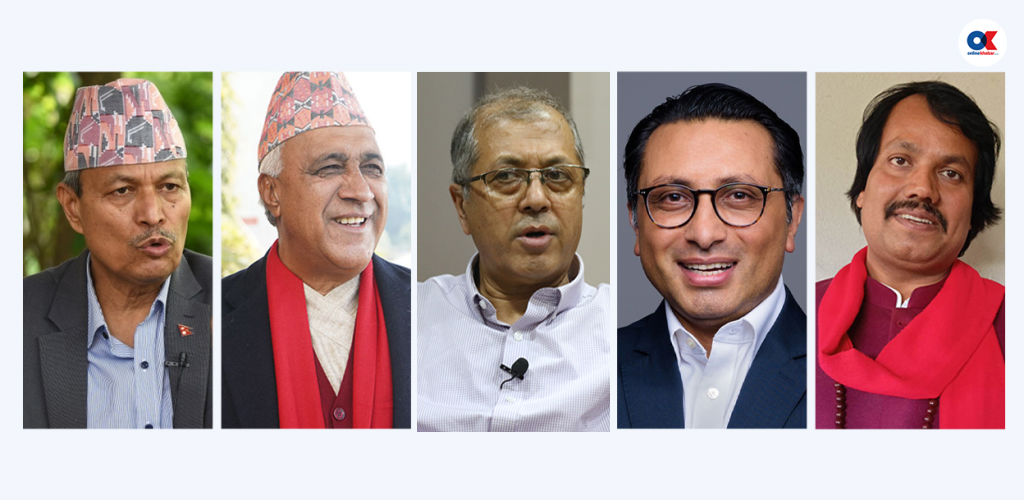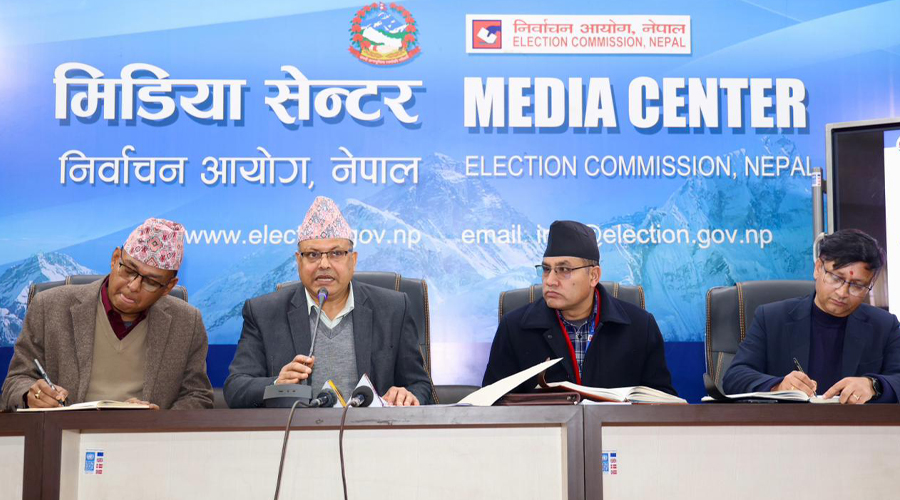
Cinema Art
There is no possibility of love in debutante director Apil Bista’s Jhumkee. It is, thus, especially poignant when at the end of the movie, Gokul (Manoj RC), a convict on the run, is asked to make clear his motivation for pursuing Deuki (Rishma Gurung).
“Love,” he picks from the the possibilities given to him, the other two being ‘circumstances’ and ‘plan.’
Deuki, on the other hand, is also a convict, returning to the only safe place she knows. Nothing builds intimacy like shared vulnerability, they say. But in Jhumkee, love and trust is a far-fetched concept, especially in a society ridden with machinations of a conflict. It is, however, in these moments of near romance between Gokul and Deuki that Jhumkee makes an unassuming political statement.

It is… in these moments of near romance between Gokul and Deuki that Jhumkee makes an unassuming political statement.
For a while, it is hard to pinpoint at what exactly the movie is building up to. From class and political differences to abuse of power and old customs, it touches upon a myriad of subjects, never settling for one.
It is a testimony to writer Ram Babu Gurung’s story, that all these elements eventually come together as a heartfelt tale of love during the time of conflict.
One could draw parallels between the ancient custom her name alludes and the character Deuki, who is also motivated to act out of her own tragedy. She offers herself to others seeking atonement.
Gurung makes a remarkable transition from the highlands of Mustang in the Kabaddi series of movies to the lowlands of Dang in Jhumkee.
The youthful enthusiasm of Kabaddi’s Maiya is also shared by Jhumkee’s Deuki. But Deuki also carries the burden of a tragedy like a wounded tigress limping through the jungle. At one point, Deuki literally takes a fall, limiting her movement.
Gokul, on the other hand, is the quintessential hero, who stands as the support to Deuki’s fall. RC plays the lovelorn hero with charm and ease. In one scene during the passage home with Deuki, he offers her a drink of water from a canal carried over in a plastic wrapper. It is in moments like these that the movie eludes the looming crisis. While Gokul may be motivated by love, everyone else in Jhumkee is bound by circumstances.
At first, even director Bista’s telling of the story with its languid pace seems to be bound by circumstances rather than plan. At times, it feel as if Bista has too much faith in the story to elevate it with a degree of personal involvement. But by the end Jhumkee’s story is so incredibly resonant that it supersedes everything else.
***
Read also
‘Gaatho’ movie review: Exploring the persona of an artist
























